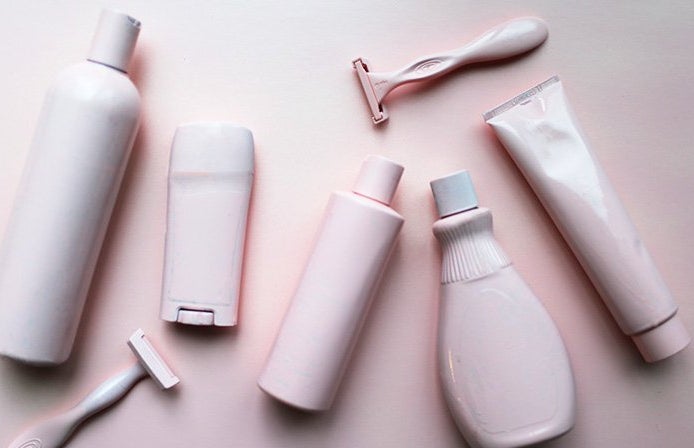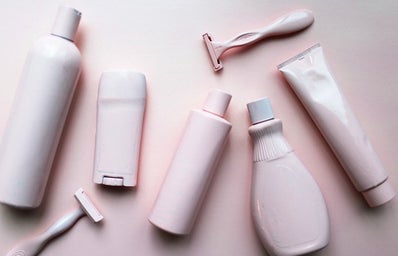I have been following the same skincare and makeup routine for almost all of my teenage and adult life. I have found the perfect products that work for me and continuously buy them, but one summer all of that changed. I found out that there is PLASTIC in my favorite face wash! I was so confused and decided to research more about why makeup and skin care companies were putting plastic in their products.
The formal term for the plastic that is in your face wash is called microplastics. Microplastics are used in a variety of beauty products and are generally used for exfoliation. The microplastics are supposed to mimic natural exfoliators like fruit pits which are used in products by more natural companies like Burt’s Bees. Microplastics are used because it’s significantly cheaper to produce in comparison to salvaging fruit pits. This causes a lot of environmental issues that many skin and beauty care enthusiasts are unaware of.
Scientists that have been studying rivers, lakes, and oceans have found these microplastics in sea life. The microplastics are so small that when you wash your face with the product, they easily slip into your drain and pass through all water filters that are supposed to filter these plastics out. This results in the microplastics to be led out into major waterways and then easily consumed by animals and sea life. Like everything in life, these microplastics come right back to the source and humans end up eating them in their seafood.
The other issue microplastics cause is the inability to get them officially banned and outlawed. Beauty and skincare companies have improved their sales by adding in ‘exfoliating beads’ (microplastics) into their products. People love the aesthetically pleasing look microplastics give to their face washes. The very popular Clean&Clear company had a major breakthrough when they introduced their face wash line, ‘Morning Bust’, that contained exfoliating microbeads. For years this product was a top selling face wash until it received major backlash when people found out it was harming the environment. Ever since, Clean&Clear has swore to never use any environmentally harmful ingredients in their products, but is still on the list of companies that use microplastics.
Needless to say, there are many companies out there that still use microbeads like Aveeno, Biore, Bliss, and Cetaphil. The list goes on and on, but there is hope out there for companies that do not use these “exfoliators”. The website that I frequently use in order to check whether my products are safe or not is: https://www.beatthemicrobead.org/. Staying clean and fresh while not hurting the environment is still possible! Check ingredients and use the website I mentioned to make sure your products are not harmful!
Julia Clarke
Edited by Carlie Mashia



